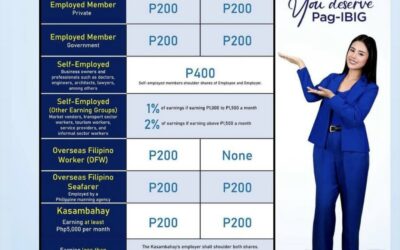Multinational consumer goods company Unilever vowed to ensure that its local suppliers of goods and services earn at least a living wage or income by 2030.
The move is part of Unilever’s global pledge to build a more equitable and inclusive society by raising living standards across its value chain, creating opportunities through inclusivity, and preparing people for the future of work.
Unilever already pays its employees at least a living wage, and the company wants to secure the same for more people beyond their workforce, specifically focusing on the most vulnerable workers in manufacturing and agriculture. The company will work with suppliers, other businesses, governments, and NGOs through purchasing practices, collaboration, and advocacy to create systemic change and global adoption of living wage practices.
It has also committed to spending €2 billion (Php 58.7 billion) annually with suppliers owned and managed by people from under-represented groups by 2025. Unilever set out to pioneer new employment models for its employees, and equip 10 million young people with essential skills to prepare them for job opportunities by 2030.
“We believe the actions we are committing to will make Unilever a better, stronger business; ready for the huge societal changes we are experiencing today changes that will only accelerate. Without a healthy society, there cannot be a healthy business,” explained Unilever CEO Alan Jope.
Raising living standards
In parallel, Unilever will also help 5 million small- and medium-sized enterprises (SMEs) in its retail value chain grow their business through access to skills, finance, and technology by 2025. These are often retailers who run independent stores (like sari-sari stores), outlets and kiosks, or micro-entrepreneurs making sales in the streets or house-to-house. Unilever will provide them with access to digital tools, financial inclusion and services, and public-private models that support social entrepreneurship, to help them grow their business and their income.
In the Philippines, a majority of small and micro enterprises comprise hundreds of thousands of sari-sari stores. Unilever has embarked on the Kabisig Summit, an innovative program that enhances the livelihood of these small-scale retailers by providing them with essential entrepreneurial skills. Sari-sari store owners were coached on business management skills such as cash and inventory management, selling techniques, and customer service using new digital training modules. Unilever has also partnered with microfinance institutions and banks to provide these small retailers access to more capital to help grow their business. New digital platforms were also introduced to now over 50,000 Kabisig stores, which help in facilitating the sales and distribution of products across the country.
Unilever also works with thousands of smallholder farmers in improving their yield and income through its Unilever Sustainable Agri Code (USAC) – a training and support program focused on strong sustainable agricultural practices and value chain integration. An example of this partnership is their Sampaloc landmark farms for their food brand Knorr, which has benefited over 800 smallholder farmers and their families to date.
“Sustainability is the driving force in Unilever’s growth and investment story, and we remain committed to uplifting the quality of life of our partners within the value chain and the communities that we serve,” shared Unilever Philippines Chairman and CEO, Benjie Yap.
For more information about Unilever and its brands, please visit www.unilever.com. For more information on the USLP: www.unilever.com/sustainable-living/.




